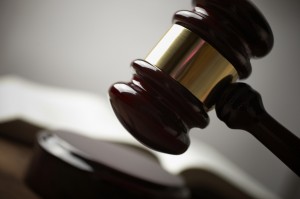 There is a long-standing doctrine at common law known as the “collateral source” rule. Virginia codified this in VA Code § 8.01-35, which states:
There is a long-standing doctrine at common law known as the “collateral source” rule. Virginia codified this in VA Code § 8.01-35, which states:
In any suit brought for personal injury or death, provable damages for loss of income due to such injury or death shall not be diminished because of reimbursement of income to the plaintiff … from any other source, nor shall the fact of any such reimbursement be admitted into evidence.
The collateral source doctrine arose to bar defense attorneys from raising the fact at trial that plaintiffs were compensated for their injuries or lost wages arising out of an injury. The public policy reason being that to do so could sway the jury and, in effect, punish the victim for carrying insurance and observing their social responsibility. The vast majority of the time the collateral source doctrine arises in personal injury actions or medical malpractice litigation. So how does the collateral source rule affect the Virginia subrogation attorney?
In the typical subrogation case involving an automobile accident the policyholder is the witness for the plaintiff (the insurance company) and the defendant is uninsured and testifying on their own behalf. The policyholder has been compensated for their loss and the vast majority of the time has nothing to gain or lose by the outcome of the case. They are merely acting as a witness. However, for the defendant the case can have major consequences, both financial and personal. Therefore, sometimes in a “he said, she said” case it can be prudent to point out to the trier of fact that the plaintiff’s witness has nothing to gain by their testimony, while the defendant has something to lose, sometimes a lot.
This can sometimes run into an objection by defense counsel if the opposing party is represented, citing the collateral source rule, or the judge, sua sponte , will express misgivings about bringing up the fact that one witness was compensated under an insurance policy. There is a strong argument that under current case law the collateral source doctrine does not apply to most property damage cases since the statute expressly refers to “suit brought for personal injury or death”, but there is a common misconception that the common law and the statute act as an absolute bar.
The new Virginia Rules of Evidence put any confusion to rest, however, in the text of Rule 2:411 “Insurance”:
Evidence that a person was or was not insured is not admissible on the question whether the person acted negligently or otherwise wrongfully, and not admissible on the issue of damages. But exclusion of evidence of insurance is not required when offered for another purpose, such as proof of agency, ownership, or control, or bias or prejudice of a witness.
When read in conjunction with VA Code § 8.01-35 it is clear that evidence of an insurance policy can be admitted into evidence to demonstrate the objectivity or bias of a witness. Therefore, the Virginia subrogation attorney can point out to the trier of fact that the policyholder has nothing to lose or gain by the outcome of litigation. Most of the time judges will make this connection on their own, but in close cases it can help to tip the scales to that crucial 51% needed for the “preponderance of the evidence” standard required.
We will continue to analyze the new Virginia Rules of Evidence to evaluate their impact upon subrogation litigation in Virginia, stay tuned.
